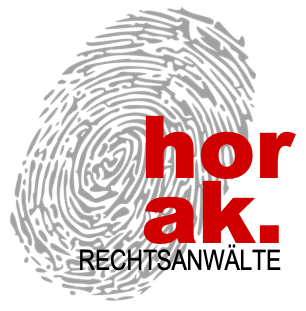Mexico Joins the International Trademark System
Geneva, November 19, 2012
PR/2012/725
Mexico’s Secretary of Economy Bruno Ferrari deposited his country’s instrument of accession to the Madrid Protocol for the International Registration of Marks with WIPO Director General Francis Gurry on November 19, 2012, bringing the total number of members of the international trademark system to 89. The treaty will enter into force with respect to Mexico on February 19, 2013. The Madrid System for the International Registration of Marks (Madrid system) offers trademark owners a cost effective, user friendly and streamlined means of protecting and managing their trademark portfolio internationally.

Mexico’s Secretary of Economy Bruno Ferrari and
Director General Francis Gurry (Photo: WIPO/Berrod)
Mr. Gurry welcomed Mexico’s accession, noting that “Mexico is the third country in the Latin American region to join the Madrid trademark filing system. Its accession to the Madrid Protocol will assist enterprises in Mexico that are seeking to expand their markets overseas. It will also assist WIPO in achieving its objective of transforming the Madrid System into a system with truly global reach.” He also congratulated Mexico’s Institute of Industrial Property (IMPI) and its Director General, Dr. Rodrigo Roque, for putting in place state-of-the-art practices that are supported by a modern information technology infrastructure and by competent human resources. Mr. Gurry said that “Mexico’s legal and institutional framework will guarantee the successful implementation of the Madrid Protocol in Mexico,” noting that IMPI is among the top fifteen IP offices receiving the highest number of trademark applications worldwide.
Mr. Ferrari said that “brand owners in Mexico stand to greatly benefit from the Madrid Protocol.” He observed that Mexico is the 11th largest world exporter and has the highest value of exports in Latin America, 80% of which are manufactured goods. In relation to Mexico’s GDP, it is the third largest exporter in the world of high tech products. It is also a G-20 economy with a trade volume of over 700 billion dollars in 2011. This increased by 20% between 2008 and 2011, in spite of the global economic downturn.
The Minister said that “Mexico has one of the largest networks of trade agreements in the world and it is also seeking to increase and diversify its trade associations. In this framework, the Madrid Protocol is a logical component which will strengthen the expanding trade policies implemented by the Mexican government. Since this extended network of trade agreements includes many Latin American countries, Mexico trusts that many more countries of the region will soon join this very useful tool; particularly, as a means to foster regional and global economic growth, as it has been promoted by Mexico during its G-20 Presidency in 2012.”
Mexico becomes the fourth Spanish speaking country in the Madrid system. Spanish was introduced as a working language of the Madrid system in 2004. This has facilitated the way for the expansion and consolidation of the Madrid system in the Latin American region.
This year, the Philippines, Colombia, New Zealand and Mexico have acceded to the Madrid system, resulting in a geographical expansion of the system.
The Madrid system is equally attractive to large businesses, as to small and medium-sized enterprises, which are the largest users of the system. In the midst of current global economic conditions, the Madrid system has shown signs of strength, which are evidence of its known advantages. 2011 saw the highest number of international trademark applications ever filed under the Madrid system, with 42,270 applications, or a 6.5 % increase compared to 2010. Moreover, from January to October, 2012, the number of international applications filed has increased by 4.4 per cent, compared to the same period last year.
Background
Under the WIPO-administered Madrid system, a trademark owner may protect a mark in up to 88 countries plus the European Union with its Community Trade Mark (CTM) by filing one application, in one language (English, French or Spanish), with one set of fees, in one currency (Swiss Francs). Applicants wishing to use the Madrid system must apply for trademark protection in a relevant national or regional trademark office before seeking international protection. An international registration under the Madrid system produces the same effects as an application for registration of the mark in each of the contracting parties designated by the applicant.
If protection is not refused by the trademark office of a designated contracting party, the status of the mark is the same as if it had been registered by that office. Thereafter, the international registration can be maintained and renewed through a single procedure. Thus, the system provides a cost-effective and efficient way for trademark holders to secure and maintain protection for their marks in multiple countries.
Trademarks are a key component of any successful business marketing strategy as they allow companies to identify, promote and license their goods or services in the marketplace and to distinguish them from those of their competitors, and cement customer loyalty. A trademark symbolizes the promise of a quality product and in today’s global and increasingly electronic marketplace, a trademark is often the only way for customers to identify a company’s products and services. Trademark protection hinders moves to “free ride” on the goodwill of a company by using similar distinctive signs to market inferior or similar products or services. Loss, dilution or infringement of a high-value trademark could prove devastating to a business.
The international trademark system is governed by two treaties, namely, the Madrid Agreement Concerning the International Registration of Marks (1891) and the Madrid Protocol Relating to the Madrid Agreement Concerning the International Registration of Marks (1989).
Quelle: WIPO
